The Colorful Tradition of Rangoli: Embracing Deepawali's Colors While Breaking Menstrual Stigma"

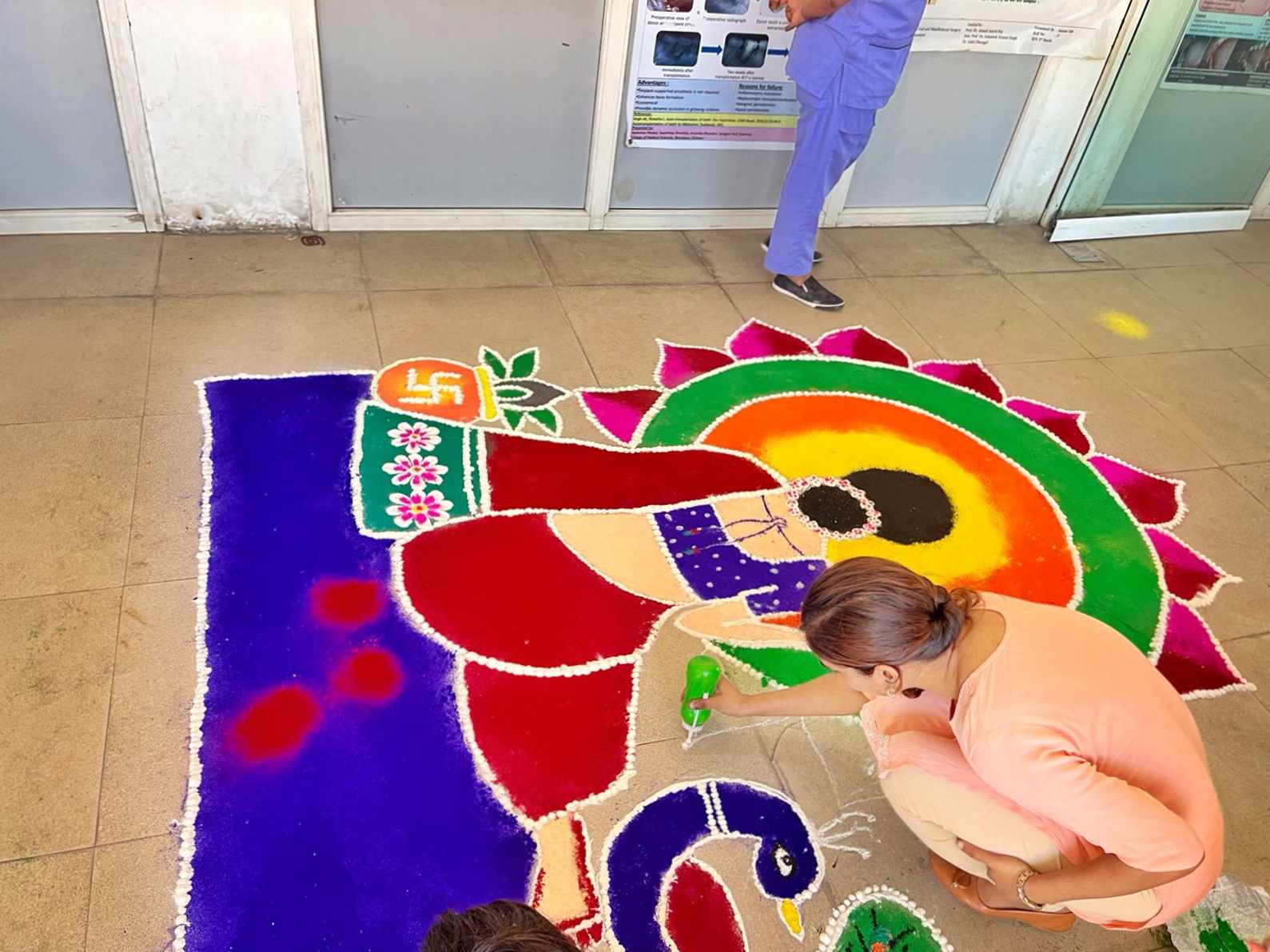
Hello everyone! Dr. Smrity Here, at the College of Medical Sciences, every year we eagerly expect one big event — the annual rangoli competition organized by our college. It's a delightful occasion where students from all departments of dentists, medical officers, nurses, and pharmacists eagerly come together to showcase their creativity through colorful designs and complex patterns.
We all come together, have fun, and create beautiful rangolis with many multicolors and designs. And you know what's even cooler? The college will give awesome hampers to the winners. which was a cash amount, which made the competition even more exciting for all of us!
Rangoli is like a big, beautiful multicolored painting made on the ground using colorful powders, flour, or flowers. It's been part of Indian culture as well as Nepali for a long time, bringing joy and beauty to homes and streets. But it's not just about looking beautiful but it has a special meaning of bringing people together.

What Rangoli is About:
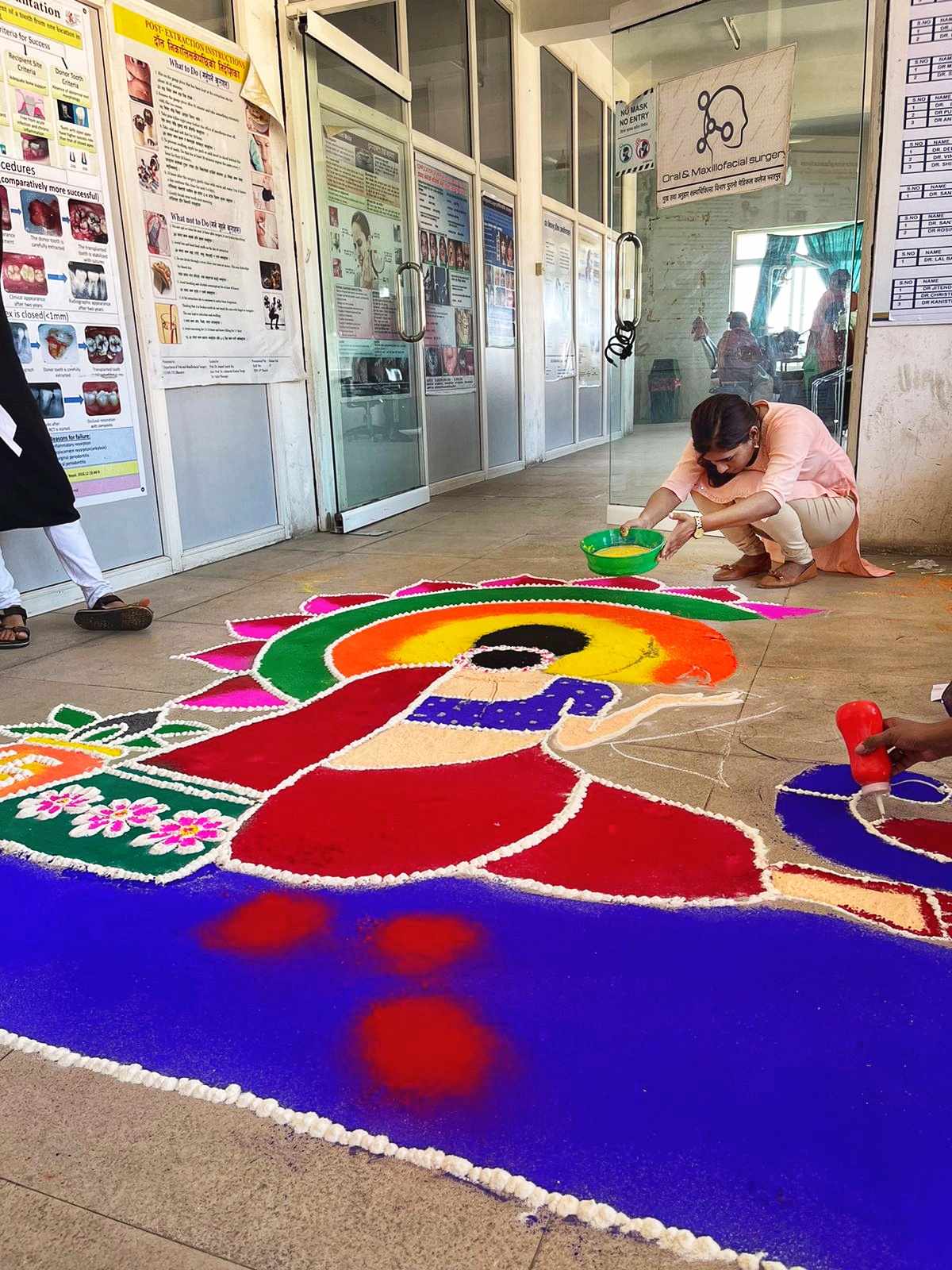
Long ago, people believed making rangoli kept bad spirits away and brought good luck and prosperity to our lives. It was also a way for women to show their creativity and make their homes look beautiful from the art during festivals and celebrations.
ABOUT THE COMPETITION
In the competition, we wanted our rangoli to convey a meaningful message to the people of Nepal. In Nepal, during menstruation, many girls and women face restrictions—they're not allowed to enter temples, cook, or even do basic things. This belief stems from the idea that a girl is considered impure during her menstrual period. However, during one of Nepal's biggest festivals, Deepawali, we make rangoli at our doorsteps, believing that it invites goodness and prosperity into our lives, as the goddess Laxmi is worshipped during this time.
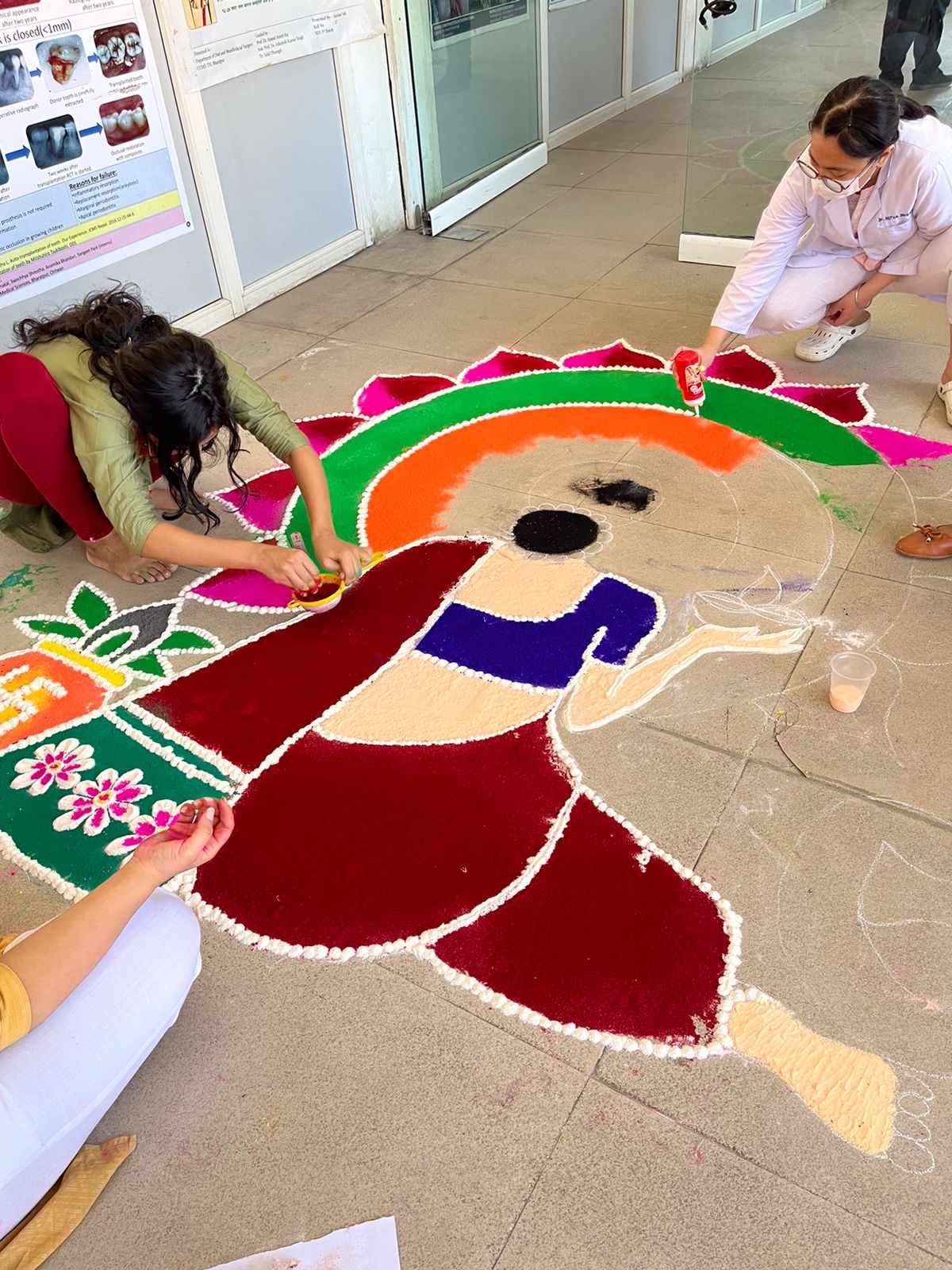

Challenging the Stigma:
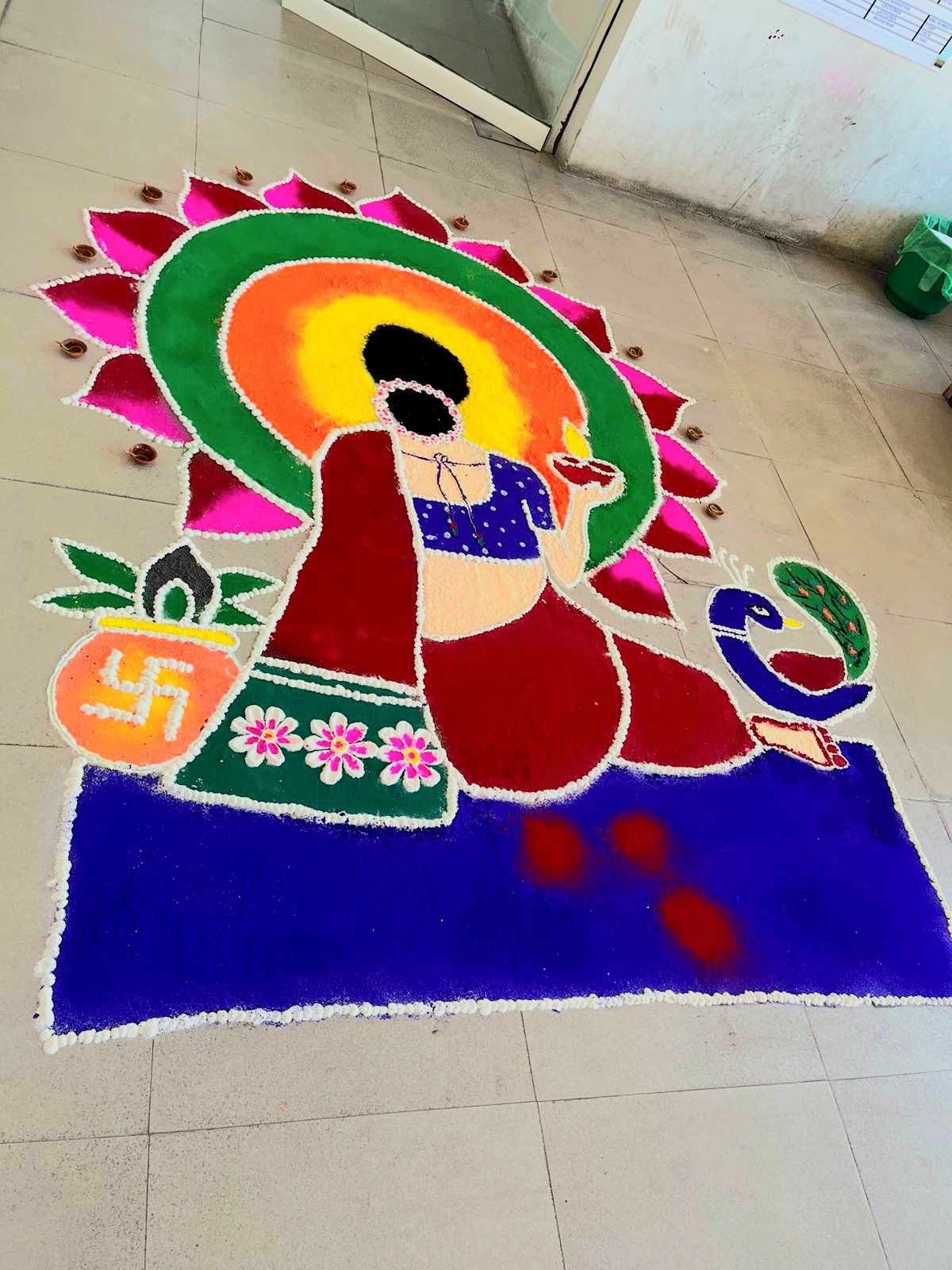
Our rangoli had a powerful message for the People of Nepal. We celebrate Deepawali(Tihar) in the name of a female goddess, yet females are prohibited from participating in the festivities or entering the temple. when they are menstruating. We questioned this discrimination—why should a woman be excluded from celebrating any festival, or entering into temple? simply because she is menstruating? A woman is a mother, a sister, and a symbol of divine power. If we give so much importance to female gods if so why do we discriminate against women during their periods? Taboos must be eliminated from society now or then. bringing a small change makes a huge difference.

A Powerful Message:
Our rangoli depicted the image of a bleeding goddess Kamakhya Devi, challenging the taboo surrounding menstruation. In Hindu mythology, Kamakhya Devi is a goddess associated with menstruation. If we can worship a bleeding goddess, then why can't a menstruating woman be involved in any kind of festivities? Our rangoli aimed to have conversations and change people's mindsets, advocating for equality and including for all women, regardless of their menstrual status.

Conclusion
Participating in the rangoli competition wasn't just about creating a beautiful design and winning money. though we got a consolation prize. Our message is about mensuration and bringing a change in stereotypes, advocating for change, and promoting equality.
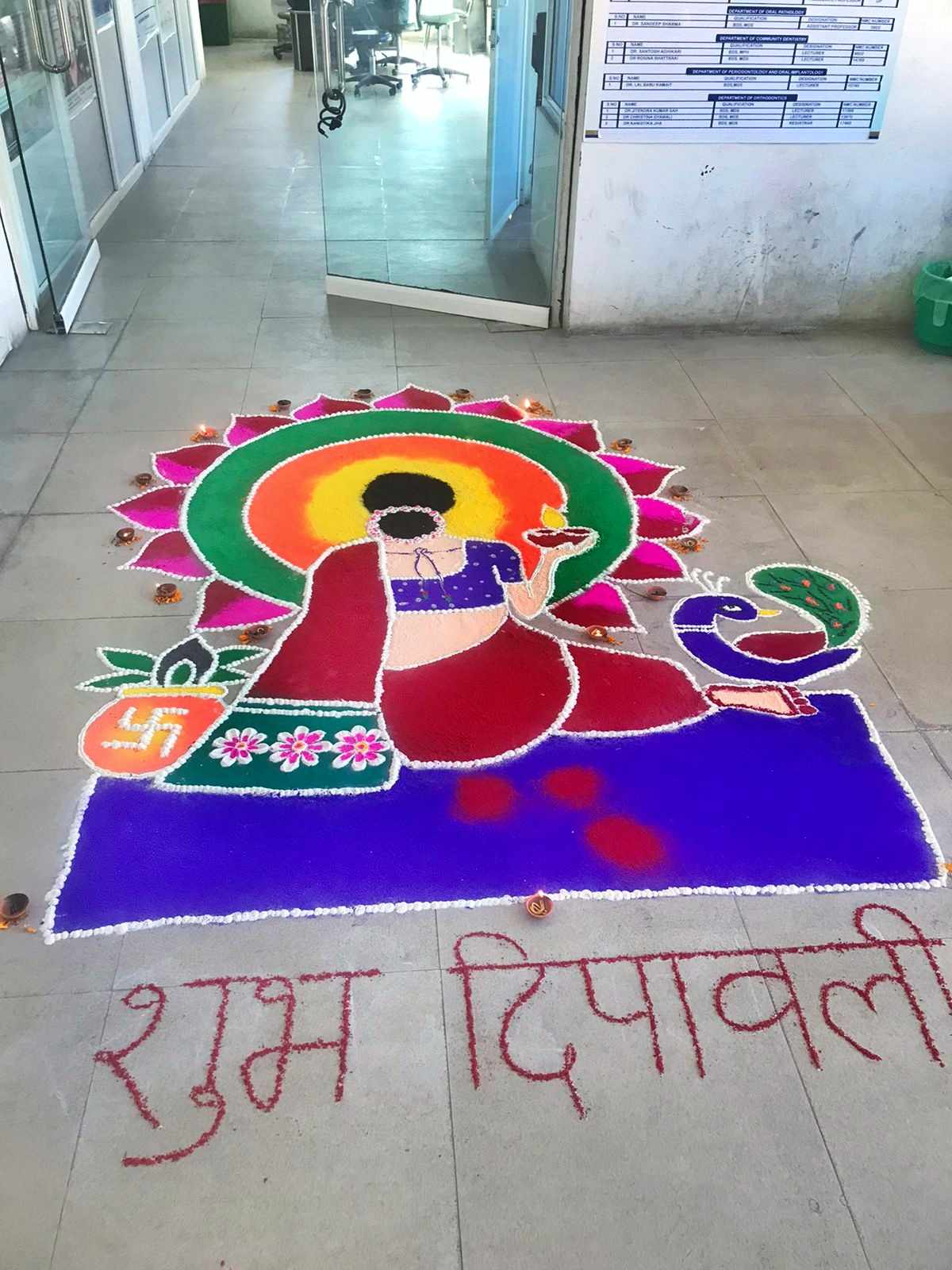
"NO WOMAN OR GIRL SHOULD BE HELD BACK BECAUSE OF HER PERIOD"

This is wonderful Rangoli....
Well done. I hope gift hamper will be rewarded to you !!
Hello dear friend @dentalmental, good morning.
At some point I had read it about this issue of menstruation and the hegative of entering the temples, I never understood why they did it, it is a discriminatory act
Thank you very much for sharing all the information about Rangoli.
Have a beautiful day
hy!! @jlufer goodmorning. not just in Nepal, but women are also facing the same problems in India... I never understood the concept... but since it's been followed by our ancestors... it's been made a kind of compulsion. but since my family is chill. I don't follow many rules. but just don't enter the temple. coz it's been fed into your mind since childhood that, if you do so in your periods .. something bad might happen. so, It's a slow process but definitely, people will bring change to society.